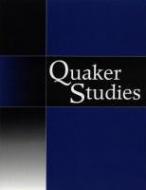
Abstract
The existing secondary literature has treated the appearance of World War I conscientious objectors (COs) before the tribunals as rather straightforward and uncomplicated. As the case of Malcolm Sparkes indicates, the process was much less straightforward and much more complex. The arduous process also shows that the power of the local tribunals was enlarged and that of the Pelham Committee reduced, due to the wrong decision - as the government acknowledged - by the local tribunal at Slough. The decision resulted in Sparkes becoming a reluctant or alternativist absolutist, a nomenclature hitherto ignored in the literature. Sparkes' case also suggests that at least some Quaker and other nonconformist COs should be viewed through the prism of the Fellowship of Reconciliation rather than through the prism of the No-Conscription Fellowship or the Friends Service Committee.
Recommended Citation
den Boggende, Bert
(2006)
"Reluctant Absolutist: Malcolm Sparkes' Conscientious Objections to World War I,"
Quaker Studies: Vol. 10
:
Iss.
1
, Article 5.
Available at:
https://digitalcommons.georgefox.edu/quakerstudies/vol10/iss1/5
